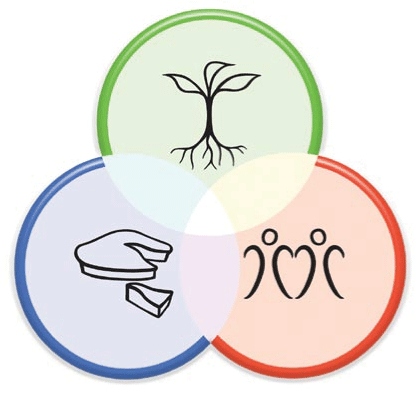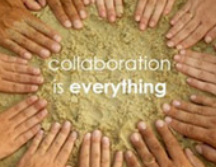Permaculture
the Art & Science of Designing in
Harmony with Nature
Harmony with Nature
Permaculture is a design art and science that sees nature as our essential teacher. Based on three ethics and 12 principles it takes a "systemic view" of the situations and circumstances of life. The understanding of "interrelationships" , the true meaning of ecology, is fundamental to permaculture. Originally applied to the notion pf "permanent agriculture" when it was first articulated as an integrated way of working with nature in the 1970's in Australia, its applicability to a wide range of human activities is now apparent.
Ethics
The ethics earth care, people care and fair share form the foundation for permaculture design and are also found in most traditional societies.val.
Ethics are culturally evolved mechanisms that regulate self-interest, giving us a better understanding of good and bad outcomes. The greater the power of humans, the more critical ethics become for long-term cultural and biological survival.
Permaculture ethics are distilled from research into community ethics, learning from cultures that have existed in relative balance with their environment for much longer than more recent civilizations. This does not mean that we should ignore the great teachings of modern times, but in the transition to a sustainable future, we need to consider values and concepts outside the current social norm.
Resolution of the Elders Circle
Resolution of the Elders Circle
Earth Care
The Earth is a living, breathing entity. Without ongoing care and nurturing there will be consequences too big to ignore.The icon of the young plant represents organic growth, a key ingredient in sustaining life on Earth.Earth Care can be taken to mean caring for the living soil. The state of the soil is often the best measure for the health and well-being of society. There are many different techniques for looking after soil, but the easiest method to tell if soil is healthy is to see how much life exists there.
Our forests and rivers are the lungs and veins of our planet, that help the Earth live and breathe, supporting many diverse life forms. All life forms have their own intrinsic value, and need to be respected for the functions that they perform – even if we don’t see them as useful to our needs.By reducing our consumption of ‘stuff’, we reduce our impact on the environment, which is the best way to care for all living things.
Our forests and rivers are the lungs and veins of our planet, that help the Earth live and breathe, supporting many diverse life forms. All life forms have their own intrinsic value, and need to be respected for the functions that they perform – even if we don’t see them as useful to our needs.By reducing our consumption of ‘stuff’, we reduce our impact on the environment, which is the best way to care for all living things.
People Care
If people’s needs are met in compassionate and simple ways, the environment surrounding them will prosper.The icon of the two people together, represents the need for companionship and collaborative efforts to affect change.
People Care begins with ourselves and expands to include our families, neighbors and wider communities. The challenge is to grow through self-reliance and personal responsibility. Self-reliance becomes more feasible when we focus on non-material well-being, taking care of ourselves and others without producing or consuming unnecessary material resources.
By accepting personal responsibility for our situation as far as possible, rather than blaming others, we empower ourselves. If we can recognize that a greater wisdom lies within a group of people, we can work with others to bring about the best outcomes for all involved.
The permaculture approach is to focus on the positives, the opportunities that exist rather than the obstacles, even in the most desperate situations.
People Care begins with ourselves and expands to include our families, neighbors and wider communities. The challenge is to grow through self-reliance and personal responsibility. Self-reliance becomes more feasible when we focus on non-material well-being, taking care of ourselves and others without producing or consuming unnecessary material resources.
By accepting personal responsibility for our situation as far as possible, rather than blaming others, we empower ourselves. If we can recognize that a greater wisdom lies within a group of people, we can work with others to bring about the best outcomes for all involved.
The permaculture approach is to focus on the positives, the opportunities that exist rather than the obstacles, even in the most desperate situations.
Fair Share
We are provided with times of abundance which enables us to share with others.The icon of the pie and a slice of it represents the taking of what we need and sharing what we don’t whilst recognising that there are limits to how much we can give and how much we can take.
Established fruiting trees are likely to produce more than one person can eat. It takes time to pick and preserve the harvest, and there are limits to how much fruit we can use. There are many ways that we benefit from giving a fair share of the bounty to others in our community.
The growth in human consumption and the accelerating extinction of species make clear the impossibility of continuous growth. Sometimes we need to make hard decisions and consider what enough is.
We need to focus on what is appropriate for us to do, rather than what others should do. By finding the right balance in our own lives we provide positive examples for others, so that they can find their own balance.
Established fruiting trees are likely to produce more than one person can eat. It takes time to pick and preserve the harvest, and there are limits to how much fruit we can use. There are many ways that we benefit from giving a fair share of the bounty to others in our community.
The growth in human consumption and the accelerating extinction of species make clear the impossibility of continuous growth. Sometimes we need to make hard decisions and consider what enough is.
We need to focus on what is appropriate for us to do, rather than what others should do. By finding the right balance in our own lives we provide positive examples for others, so that they can find their own balance.
Council of Advisors
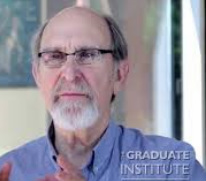
A. Harris (Bud) Stone Ed.D. is the Founder and Chancellor of The Graduate Institute, which emerged from Stone’s unusual “intellectual property out-sourcing group”, the Learning Collaborative Inc. As a professor, author, researcher, and educational entrepreneur, he has dedicated his life to leadership in the cause of educational transformation.
He designed the first master's degree in Environmental Education in the U.S., and is responsible for the establishment of more than 15 graduate programs. Before founding The Graduate Institute, Bud served as Chair of the Faculty of Education at Sacred Heart University, Chair of the Department of Education at Southern Connecticut State University, and held an academic appointment at Harvard University. He holds an EdD in Education from the University of Pennsylvania. His expertise in applied learning theory and his leadership skills have allowed him to create a series of academically and financially successful trans-disciplinary programs in emerging fields of practical knowledge.
Author of numerous academic books, he is skilled in bringing elusive ideas
into concrete form. His ability to build cultural relationships, together with
skills as a dialogue leader, enables him to guide highly productive groups in
building creative organizations. A current focus is in creating a Center
for ReGenerative Agriculture in New England which integrates cultural
experiences with the pragmatic arts of sustainability. He lives in a house by
the side of the road and is a friend to all who call.
He designed the first master's degree in Environmental Education in the U.S., and is responsible for the establishment of more than 15 graduate programs. Before founding The Graduate Institute, Bud served as Chair of the Faculty of Education at Sacred Heart University, Chair of the Department of Education at Southern Connecticut State University, and held an academic appointment at Harvard University. He holds an EdD in Education from the University of Pennsylvania. His expertise in applied learning theory and his leadership skills have allowed him to create a series of academically and financially successful trans-disciplinary programs in emerging fields of practical knowledge.
Author of numerous academic books, he is skilled in bringing elusive ideas
into concrete form. His ability to build cultural relationships, together with
skills as a dialogue leader, enables him to guide highly productive groups in
building creative organizations. A current focus is in creating a Center
for ReGenerative Agriculture in New England which integrates cultural
experiences with the pragmatic arts of sustainability. He lives in a house by
the side of the road and is a friend to all who call.
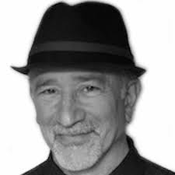
Mitch Ditkoff is President of Idea Champions, a highly acclaimed management consulting and training company, headquartered in Woodstock, NY. He specializes in helping forward thinking organizations go beyond business as usual, originate breakthrough products and services, and establish dynamic, sustainable cultures of innovation.
Educated at Lafayette College and Brown University, Mitch has worked with a wide variety of Fortune 500 and mid-sized companies who have realized the need to do something different in order to succeed in today's rapidly changing marketplace. These clients include: GE, Merck, AT&T, Allianz, Lucent Technologies, NBC Universal, Goodyear, A&E Television Networks, General Mills, MTV Networks, and PricewaterhouseCoopers among others. He has been an adjunct faculty member for several esteemed leadership development programs, including GE's Crotonville Management Development University.
At the heart of his work lies the fundamental belief that a company's most important capital asset is the collective brain power, creativity and commitment of its work force and that this asset can be significantly leveraged when people are provided with the appropriate setting, systems, tools and techniques to think (and act) out of the box.
In addition to his consulting work, Mitch is also an accomplished keynote speaker and large group workshop facilitator. In 2010, Mitch was acknowledged as one of the "40 Hottest Business Speakers on the Association Circuit". In 2013 and 2014, he was named one of the TOP FIVE speakers on innovation in America. In 2010 and 2011, he was voted the #1 innovation blogger in the world and is now a regular contributor to the Huffington Post. His blog, The Heart of Innovation, and his award-winning book, Awake at the Wheel, and his innovation-sparking card deck and online app, Free the Genie, are daily destinations for a global audience
Educated at Lafayette College and Brown University, Mitch has worked with a wide variety of Fortune 500 and mid-sized companies who have realized the need to do something different in order to succeed in today's rapidly changing marketplace. These clients include: GE, Merck, AT&T, Allianz, Lucent Technologies, NBC Universal, Goodyear, A&E Television Networks, General Mills, MTV Networks, and PricewaterhouseCoopers among others. He has been an adjunct faculty member for several esteemed leadership development programs, including GE's Crotonville Management Development University.
At the heart of his work lies the fundamental belief that a company's most important capital asset is the collective brain power, creativity and commitment of its work force and that this asset can be significantly leveraged when people are provided with the appropriate setting, systems, tools and techniques to think (and act) out of the box.
In addition to his consulting work, Mitch is also an accomplished keynote speaker and large group workshop facilitator. In 2010, Mitch was acknowledged as one of the "40 Hottest Business Speakers on the Association Circuit". In 2013 and 2014, he was named one of the TOP FIVE speakers on innovation in America. In 2010 and 2011, he was voted the #1 innovation blogger in the world and is now a regular contributor to the Huffington Post. His blog, The Heart of Innovation, and his award-winning book, Awake at the Wheel, and his innovation-sparking card deck and online app, Free the Genie, are daily destinations for a global audience
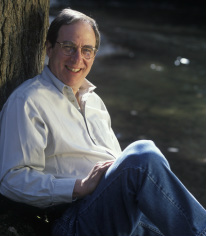
Burt Woolf, Ed. D. For over 35 years, Burt Woolf has been facilitating transformational change projects for communities, organizations and leaders throughout the world. He works exclusively with organizations and
agencies whose missions focus on improving quality of life for people wherever they live, work, learn, play, visit and stay well.
Early in his career Burt was an arts administrator, best known for his landmark work at the National Endowment for the Arts where he directed CITY SPIRIT, the first nation-wide local cultural planning grant program sponsored by the federal government. As CEO of a technology company in the 1980’s, Burt pioneered the use of microcomputers in nonprofit organizations; he designed and marketed the TEAM SYSTEM Development Software program that was installed in over 140 organizations throughout the U.S. He has been the chief executive of several major nonprofit organizations, including the Massachusetts Cultural Alliance, the Creative Education Foundation, and Glynwood Center (interim CEO).
Today, Burt focuses his work on creative problem solving and Accelerated Consensus – his own approach that has been applied in dozens of client settings including higher education, sustainable agriculture and regional food systems, community economic development and regional planning,conservation of the natural and built environment, public safety, tourism development and outdoor recreation.
For the past ten years, Burt has been an advisor to the University of Massachusetts, including project management assignments for the College of Education, facilitation of an NSF research project for the School of Computer Sciences, and leadership development and transformation programs for the Office of Administration and Finance and the Office of Information Technology.
Burt holds a Master’s in Management from UCLA, and a Doctorate in
Educational Policy and Leadership from the UMass Amherst College of Education. In his personal life, Burt practices mindfulness meditation, leads
intergenerational service learning trips to Thailand, and mentors college students in career development.
agencies whose missions focus on improving quality of life for people wherever they live, work, learn, play, visit and stay well.
Early in his career Burt was an arts administrator, best known for his landmark work at the National Endowment for the Arts where he directed CITY SPIRIT, the first nation-wide local cultural planning grant program sponsored by the federal government. As CEO of a technology company in the 1980’s, Burt pioneered the use of microcomputers in nonprofit organizations; he designed and marketed the TEAM SYSTEM Development Software program that was installed in over 140 organizations throughout the U.S. He has been the chief executive of several major nonprofit organizations, including the Massachusetts Cultural Alliance, the Creative Education Foundation, and Glynwood Center (interim CEO).
Today, Burt focuses his work on creative problem solving and Accelerated Consensus – his own approach that has been applied in dozens of client settings including higher education, sustainable agriculture and regional food systems, community economic development and regional planning,conservation of the natural and built environment, public safety, tourism development and outdoor recreation.
For the past ten years, Burt has been an advisor to the University of Massachusetts, including project management assignments for the College of Education, facilitation of an NSF research project for the School of Computer Sciences, and leadership development and transformation programs for the Office of Administration and Finance and the Office of Information Technology.
Burt holds a Master’s in Management from UCLA, and a Doctorate in
Educational Policy and Leadership from the UMass Amherst College of Education. In his personal life, Burt practices mindfulness meditation, leads
intergenerational service learning trips to Thailand, and mentors college students in career development.
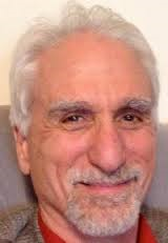
Carl Frankel JD is a writer, journalist and entrepreneur. For 20 years he has been a nationally-known thought leader specializing in sustainability, socially responsible business and social enterprise. He wrote and published his own newsletter, authored innumerable magazine articles, and published three books on these subjects: In Earth's Company, Out of the Labyrinth and The Art of Social Enterprise (co-authored with Allen Bromberger).
In his 2004 book, In Earth's Company: Business, Environment, and the Challenge of Sustainability, Frankel takes seriously the possibility that business could become sustainable, and gives inspiration and context for helping this happen. Frankel's book is a unique contribution that may challenge both environmentalists and business people. Frankel is as clear as any environmental activist that business-as-usual is a death sentence for our planet. Yet he is more pragmatic than bitter in sketching the mixed results of business and government initiatives towards sustainability. And, he holds a hopeful vision of a transformed citizenry creating a sustainable business world.
Since 2009 he has collaborated with Sheri Winston in The Center for the Intimate Arts, with roles ranging from strategic guidance to business development to event management to writing and editing. Recently he has turned his attention to sex and relationships, a logical direction since he is a partner in a social enterprise, Sheri Winston's Center for the Intimate Arts, which specializes in those subjects. Frankel's first book on relationships, Love and the More Perfect Union: Six Keys to Relationship Bliss was published in 2013.
In his 2004 book, In Earth's Company: Business, Environment, and the Challenge of Sustainability, Frankel takes seriously the possibility that business could become sustainable, and gives inspiration and context for helping this happen. Frankel's book is a unique contribution that may challenge both environmentalists and business people. Frankel is as clear as any environmental activist that business-as-usual is a death sentence for our planet. Yet he is more pragmatic than bitter in sketching the mixed results of business and government initiatives towards sustainability. And, he holds a hopeful vision of a transformed citizenry creating a sustainable business world.
Since 2009 he has collaborated with Sheri Winston in The Center for the Intimate Arts, with roles ranging from strategic guidance to business development to event management to writing and editing. Recently he has turned his attention to sex and relationships, a logical direction since he is a partner in a social enterprise, Sheri Winston's Center for the Intimate Arts, which specializes in those subjects. Frankel's first book on relationships, Love and the More Perfect Union: Six Keys to Relationship Bliss was published in 2013.

Gina McCaffrey MA is the Chief Operating Officer and the Chief Financial Officer of the Graduate Institute in Bethany CT. She received her master's in Education from Southern Connecticut State University and has a BA in accounting. Her expertise includes overseeing implementation of The Graduate Institute’s policies and procedures, designing and maintaining financial record-keeping systems, and planning, implementing, and monitoring TGI's day to day activities and operations.
Her prior experience at Southern Connecticut State University included coordinating recruitment efforts for master’s level programs, providing academic assistance to graduate students, planning and scheduling presentations at the graduate level, designing and planning conferences and institutes, monitoring budgets, researching potential lecture series topics, and training new employees. Gina serves as the “institutional memory” for all constituencies at The Graduate Institute in view of her history as an integral part of TGI from its inception.
Gina is Co-founder of the Learning Collaborative an educational incubator since 1992 and has extensive experience in non-profit grant management, navigating regulatory agency requirements at the state and federal level, and in developing ADA compliance. She has been a volunteer for the Greater Bridgeport Youth Symphony Orchestra, and grew up working summers on her family’s farms in Kansas.
Her prior experience at Southern Connecticut State University included coordinating recruitment efforts for master’s level programs, providing academic assistance to graduate students, planning and scheduling presentations at the graduate level, designing and planning conferences and institutes, monitoring budgets, researching potential lecture series topics, and training new employees. Gina serves as the “institutional memory” for all constituencies at The Graduate Institute in view of her history as an integral part of TGI from its inception.
Gina is Co-founder of the Learning Collaborative an educational incubator since 1992 and has extensive experience in non-profit grant management, navigating regulatory agency requirements at the state and federal level, and in developing ADA compliance. She has been a volunteer for the Greater Bridgeport Youth Symphony Orchestra, and grew up working summers on her family’s farms in Kansas.


